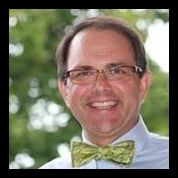BRENTWOOD, Tenn. – May 2, 2014 –
Union University is launching a program to provide theological education for deaf missionaries and church planters.
Through the partnership with the Southern Baptist Convention’s International Mission Board, the Southern Baptist Conference for the Deaf, Brentwood Baptist Church and Brentwood Baptist Deaf Church, deaf believers can receive customized theological training for missions and ministry and earn a Certificate in Theology Education.
“A significant number of the world’s unreached people are deaf,” said Carla Sanderson, Union’s provost and executive vice president for strategic initiatives. “The CTE is giving deaf missionaries the tools they need to share the gospel through story-telling techniques so that deaf people can know the good news.”
An estimated 35 million people in the world are deaf, and each day 750 of them die without knowing Jesus. With no deaf-centric theological education available, some deaf Southern Baptists called to reach those who share their heart language have been unable to meet IMB requirements for career missionary status.
The launch of a Deaf Theological Center near Nashville, Tenn., April 14 marked a historic day for reaching deaf globally. From April to August, three IMB couples who already have been working with the deaf in Southeast Asia and South Asia will receive the training they need to meet IMB requirements and continue their service.
Through the partnership, IMB provides financial support for missionaries and their families; Union provides a customized academic program, academic oversight and credit hours at a special rate; and Brentwood Baptist and its Deaf Church provide meeting space, housing and other services.
Sanderson said she believes God will use the center “to reach those millions of people … who need to hear the gospel story.”
The six students are enrolled in five classes taught in American Sign Language by fluent ASL signers: Old Testament, New Testament, biblical doctrine, biblical hermeneutics and missions/church planting.
For years, Brentwood Baptist’s vision has been to become a global equipping hub for deaf missionaries, church planters, pastors and other men and women who want to receive deaf-centric theological training for missions and ministry. During a special service at Brentwood Baptist Deaf Church April 13, representatives of the partnering institutions gathered to sign a formal agreement and celebrate the launch of the center.
Mark Sauter, who with his wife Vesta serves with IMB as an affinity global strategy leader among deaf peoples, said the center is not just about helping deaf believers meet the requirements IMB trustees have set for theological education among missionaries.
“This is an opportunity, I believe, to prepare personnel for effective, practical church planting, evangelism and the reproduction of indigenous leaders,” Sauter said. “I really don’t know how much better it gets than where we are today, and I’m very excited about the opportunity to help launch this.”
Vesta Sauter said she had waited for the day for 47 years. She recounted how, as a teenager, she watched her deaf father go forward after a worship service to tell the pastor he felt called to full-time ministry. The family went home dejected after the pastor told him deaf people couldn’t serve in formal roles because there was no theological training available to them.
Vesta decided then that she would stand in the gap between the hearing and the deaf and work toward solving the problem.
Grant Lovejoy, IMB’s director of storying strategies, said the Sauters helped IMB staff “realize that deaf people are part of a deaf culture that is unique and distinctive.”
“You really need teachers who understand deaf culture well [and] teach in the way that deaf people learn best, through stories and through lots of interaction and dialogue, through role-play and through active learning — learning by doing,” Lovejoy said.
Aric Randolph, pastor of Brentwood Baptist Deaf Church, said through an interpreter, “To be totally honest, we’re starting with five classes, but my vision is that we could become a four-year college.”
“That’s my goal, my dream, my passion, for deaf people to have the opportunity to receive the training they need, that they could be church planters, they could be pastors, leaders,” Randolph said.
Conversations are underway with the North American Mission Board to add a deaf church planting residency next year so that deaf church planters can receive training at the center and then extend their time at Brentwood Baptist for additional church-planting instruction.
By Erin Roach
- See more at: http://www.uu.edu/news/release.cfm?ID=2272#sthash.1t8GNyPc.dpuf

